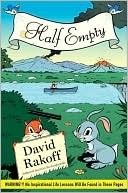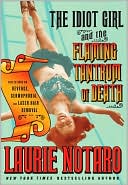Teaching a Stone to Talk: Expeditions and Encounters
Here, in this compelling assembly of writings, Pulitzer Prize-winning author Annie Dillard explores the world of natural facts and human meanings.\ \ \ "A collection of meditations like polished stones - painstakingly worded, tough-minded yet partial to Mystery..."--Kirkus Reviews\
Search in google:
Here, in this compelling assembly of writings, Pulitzer Prize-winning author Annie Dillard explores the world of natural facts and human meanings.
Total Eclipse\ I\ It had been hard like dying, that sliding down the mountain pass. It had been like the death of someone, irrational, that sliding down the mountain pass and into the region of dread. It was like slipping into fever, or falling down that hole in sleep from which you wake yourself whimpering. We had crossed the mountains that day, and now we were in a strange place--a hotel in central Washington, in a town near Yakima. The eclipse we had traveled here to see would occur early the next morning.\ I lay in bed. My husband, Gary, was reading beside me. I lay in bed and looked at the painting on the hotel room wall. It was a print of a detailed and lifelike painting of a smiling clown's head, made out of vegetables. It was a painting of the sort which you do not intend to look at, and which, alas, you never forget. Some tasteless fate presses it upon you; it becomes part of the complex interior junk you carry with you wherever you go. Two years have passed since the total eclipse of which I write. During those years I have forgotten, I assume, a great many things I wanted to remember--but I have not forgotten that clown painting or its lunatic setting in the old hotel.\ The clown was bald. Actually, he wore a clown's tight rubber wig, painted white; this stretched over the top of his skull, which was a cabbage. His hair was bunches of baby carrots. Inset in his white clown makeup, and in his cabbage skull, were his small and laughing human eyes. The clown's glance was like the glance of Rembrandt in some of the self-portraits: lively, knowing, deep, and loving. The crinkled shadows around his eyes were string beans. His eyebrows were parsley. Eachof his ears was a broad bean. His thin, joyful lips were red chili peppers; between his lips were wet rows of human teeth and a suggestion of a real tongue. The clown print was framed in gilt and glassed.\ To put ourselves in the path of the total eclipse, that day we had driven five hours inland from the Washington coast, where we lived. When we tried to cross the Cascades range, an avalanche had blocked the pass.\ A slope's worth of snow blocked the road; traffic backed up. Had the avalanche buried any cars that morning? We could not learn. This highway was the only winter road over the mountains. We waited as highway crews bulldozed a passage through the avalanche. With two-by-fours and walls of plyboard, they erected a oneway, roofed tunnel through the avalanche. We drove through the avalanche tunnel, crossed the pass, and descended several thousand feet into central Washington and the broad Yakima valley, about which we knew only that it was orchard country. As we lost altitude, the snows disappeared; our ears popped; the trees changed, and in the trees were strange birds. I watched the landscape innocently, like a fool, like a diver in the rapture of the deep who plays on the bottom while his air runs out.\ The hotel lobby was a dark, derelict room, narrow as a corridor, and seemingly without air. We waited on a couch while the manager vanished upstairs to do something unknown to our room. Beside us on an overstuffed chair, absolutely motionless, was a platinum-blond woman in her forties wearing a black silk dress and a strand of pearls. Her long legs were crossed; she supported her head on her fist. At the dim far end of the room, their backs toward us, sat six bald old men in their shirtsleeves, around a loud television. Two of them seemed asleep. They were drunks. "Number six!" cried the man on television, "Number six!"\ On the broad lobby desk, lighted and bubbling, was a ten-gallon aquarium containing one large fish; the fish tilted up and down in its water. Against the long opposite wall sang a live canary in its cage. Beneath the cage, among spilled millet seeds on the carpet, were a decorated child's sand bucket and matching sand shovel.\ Now the alarm was set for six. I lay awake remembering an article I had read downstairs in the lobby, in an engineering magazine. The article was about gold mining.\ In South Africa, in India, and in South Dakota, the gold mines extend so deeply into the earth's crust that they are hot. The rock walls bum the miners' hands. The companies have to air-condition the mines; if the air conditioners break, the miners die. The elevators in the mine shafts run very slowly, down, and up, so the miners' ears will not pop in their skulls. When the miners return to the surface, their faces are deathly pale.\ Early the next morning we checked out. It was February 26, 1979, a Monday morning. We would drive out of town, find a hilltop, watch the eclipse, and then drive back over the mountains and home to the coast. How familiar things are here; how adept we are; how smoothly and professionally we check out! I had.. forgotten the clown's smiling head and the hotel lobby as if they had never existed. Gary put the car in gear and off we went, as off we have gone to a hundred other adventures.\ It was before dawn when we found a highway out of town and drove into the unfamiliar countryside. By the growing light we could see a band of cirrostratus clouds in the sky. Later the rising sun would clear these clouds before the eclipse began. We drove at random until we came to a range of unfenced hills. We pulled off the highway, bundled up, and climbed one of these hills.\ The hill was five hundred feet high. Long winter-killed grass covered it, as high as our knees. We climbed and rested, sweating in the cold; we passed clumps of bundled people on the hillside who were setting up telescopes and fiddling with cameras. The top of the hill stuck up in the middle of the sky. We tightened our scarves and looked around.\ Teaching a Stone to Talk. Copyright © by Annie Dillard. Reprinted by permission of HarperCollins Publishers, Inc. All rights reserved. Available now wherever books are sold.
Total Eclipse9An Expedition to the Pole29Living Like Weasels65In the Jungle71The Deer at Providencia78Teaching a Stone to Talk85On a Hill Far Away95Lenses102Life on the Rocks: The Galapagos108A Field of Silence130God in the Doorway137Mirages140Sojourner146Acres and Eights151








